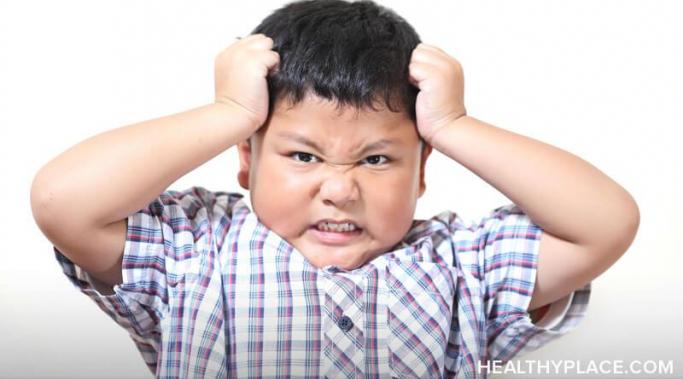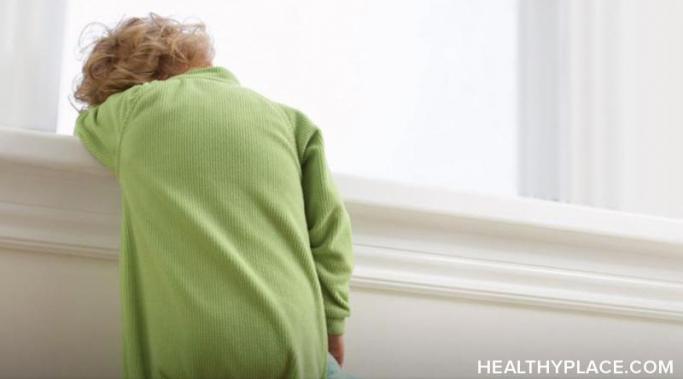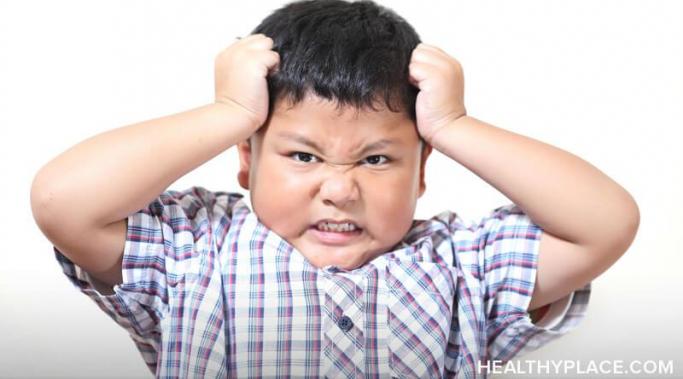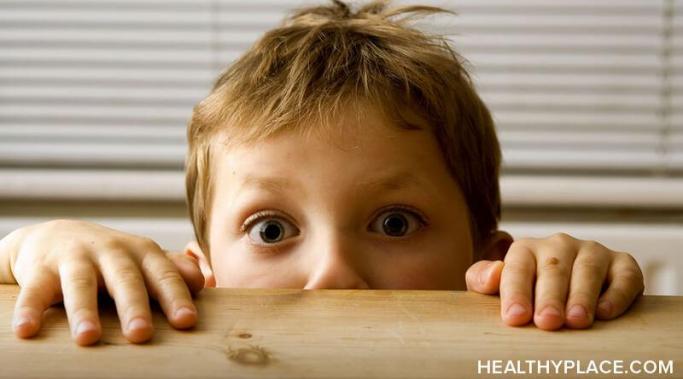Life is tough when your child has a mental illness. It gets even tougher when you do, too.
Anxiety – Parenting Child with Mental Iillness
Attention-deficit/hyperactivity disorder tantrums -- they're loud, unnerving, embarrassing, and make me question myself as a parent. They come with the territory of raising a child with attention-deficit/hyperactivity disorder (ADHD), and although they aren't the most fun part of my day, I've found ways to deal with them without sacrificing my sanity (for the most part). I've also learned to understand why my son throws tantrums and where his ADHD comes into play. This understanding has given me clues to how to handle the situation and move forward.
Separation anxiety in children is an intense fear of being separated from a loved one. It's considered normal in infants and toddlers. In older kids, it may be a sign of an anxiety disorder. As the parent of a child with disruptive mood dysregulation disorder (DMDD), I often find myself wondering if what he experienced in early childhood was separation anxiety or the signs of the emotional disorder to come.
How do we know when to worry about temper tantrums in our children? According to recent research, about 83% of preschoolers have regular temper tantrums.1 If you're reading this, I'm guessing you are the parent of at least one of the 83 percent. I was one such parent, too, and my son's tantrums turned out to be the sign of childhood mental illness. How do you know when to worry about temper tantrums because it might be the same for you?
The stress of change can be difficult for any child, but for children with emotional and behavioral disorders, the stress of change hits harder. They often can't predict their own behaviors, thoughts, or feelings, so it makes things worse when they can't predict their environment either. Life isn't very predictable, though, so how do we help our children with mental illnesses better manage the stress of change?
Preparing your mentally ill children for natural disasters is vitally important. Knowing what kinds of natural disasters are expected in your area and preparing a plan to deal with a crisis will provide a sense of control and safety to children with mental illness during a natural disaster.
There are mental health benefits of pets for children with mental illness. Pets can be great friends and teachers to children with attention-deficit/hyperactivity disorder (ADHD), disruptive mood dysregulation disorder (DMDD), or other mental health concerns. Plenty of research exists backing up the helpfulness of having animals in therapy, school, or at home. My son's mental health benefits from the animals in his life.
Maintaining mental health over the holidays can be a real challenge for teens and young adults with mental illness. With 64% of mentally ill people finding holidays stressful, according to a study by the National Alliance on Mental Illness (NAMI), it is important to find ways to stay healthy during the holidays. So read on for holiday mental health tips.
My children start school this week, so I'm back to worrying about both sides of bullying. As a parent of a child with mental illness, who is not going to be mainstreamed this year, the fear is real. Will he be bullied for being "special ed", or will his behaviors make him the bully? I tell myself that, if I can just get him through adolescence, he'll be okay. In the meantime, though, how do I manage when I understand that both sides of bullying could affect my child's school year?
For a child with mental illness, school refusal can be common. School can be anxiety-provoking for children with mental illnesses (School Anxiety in Children: Signs, Causes, Treatments). School refusal is anxiety-provoking for parents. Working parents have the added layer of inflexible timelines. Being late to work daily may get them fired, and the employer doesn't necessarily care about our struggles with our children. So what can we do as parents to get our mentally ill children past school refusal?









